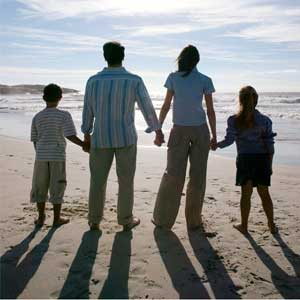Tuesday,16 june 2009, Council of Europe
Why many Europeans limit the size of their families?
 Evidence shows that people in Europe wishing to have children postpone, limit or fail to fulfil this wish because of unfavourable social, economic or other factors. Ministers responsible for family affairs from Council of Europe member states will take part in a major conference – Public Policies Supporting the Wish to Have Children: Societal, Economic and Personal Factors – to examine the best policies to help people wanting to have children.
Evidence shows that people in Europe wishing to have children postpone, limit or fail to fulfil this wish because of unfavourable social, economic or other factors. Ministers responsible for family affairs from Council of Europe member states will take part in a major conference – Public Policies Supporting the Wish to Have Children: Societal, Economic and Personal Factors – to examine the best policies to help people wanting to have children.
The ministers will also assess results of a comprehensive Council of Europe questionnaire, which collected data on family policy and provides country-by-country comparative analysis and statistics for 40 European countries, from Latvia and Spain to Turkey and Switzerland.
The conference, to be opened by Federal President of Austria Heinz Fischer and Council of Europe Deputy Secretary General Maud de Boer-Buquicchio, will include two working sessions: Why many Europeans have fewer children than they actually want: societal and economic factors and Family-friendly policies: measures for an optimal framework.
The gathering marks the 50th anniversary of this type of ministerial conference, which was held for the first time in 1959, also in Vienna. The last conference was held in Lisbon in May 2006. The Council of Europe has a strong record in promoting effective family policies, based on the principle of human rights, and particularly on children’s rights and gender equality.